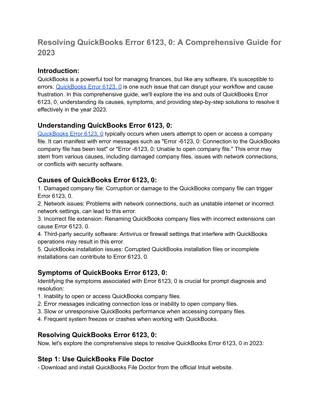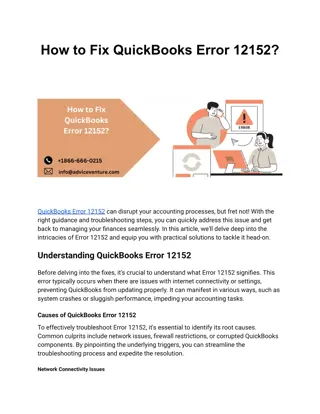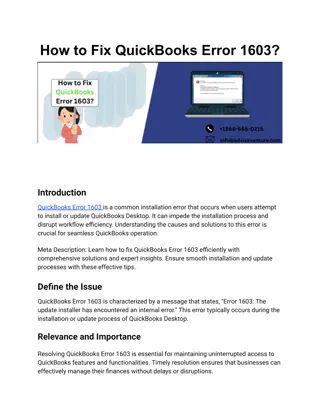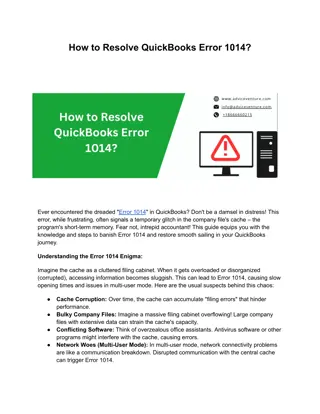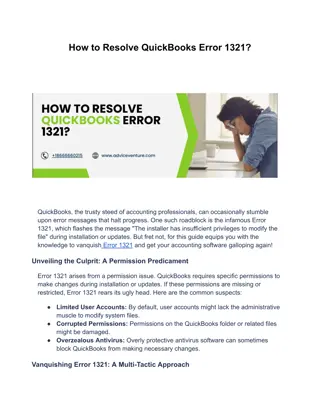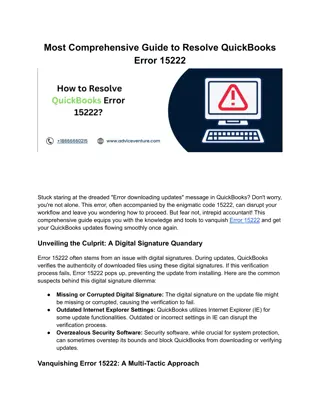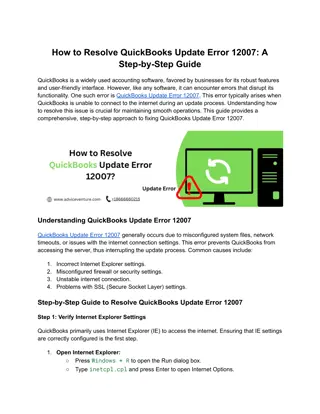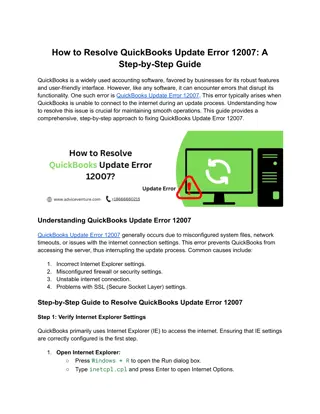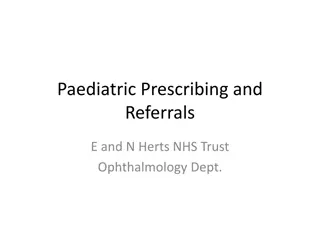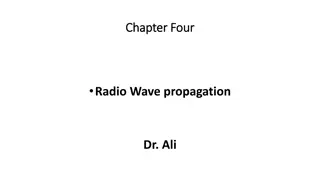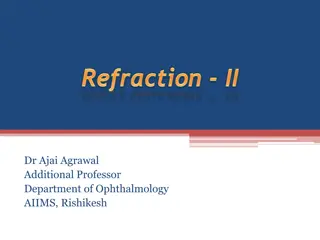
Refractive Errors: Symptoms, Causes, and Treatment
Learn about refractive errors affecting vision, including symptoms, causes, types, treatment options, and prevention methods. Discover how changes in the eye's shape can lead to blurry vision and explore ways to correct refractive errors for improved visual clarity.
Download Presentation

Please find below an Image/Link to download the presentation.
The content on the website is provided AS IS for your information and personal use only. It may not be sold, licensed, or shared on other websites without obtaining consent from the author. If you encounter any issues during the download, it is possible that the publisher has removed the file from their server.
You are allowed to download the files provided on this website for personal or commercial use, subject to the condition that they are used lawfully. All files are the property of their respective owners.
The content on the website is provided AS IS for your information and personal use only. It may not be sold, licensed, or shared on other websites without obtaining consent from the author.
E N D
Presentation Transcript
StudyMafia.Org Refractive Error Submitted To: Submitted By: Studymafia.org Studymafia.org
Table Contents Definition Introduction Symptoms of Refractive Error Causes of Refractive Error Types of Refractive Error Treatment of Refractive Error Prevention of Refractive Error Conclusion 2
Definition Refractive errors are extremely common eye conditions that make your vision blurry 3
Introduction Refractive errors are a common eye condition that occurs when the eye s shape prevents light from focusing directly on the back of the eye, resulting in blurry vision among other symptoms. Usually, all you ll need is a new pair of glasses or contacts to restore your vision. Talk to your eye care specialist about vision correction surgery if you have a refractive error but don t want to wear corrective lenses. 4
Causes of Refractive Error Changes in the shape of your cornea, your lens or your whole eye can cause refractive errors. Which type of refractive error you have depends on how your eye is shaped. They can also develop as you get older. Aging eyes can develop a refractive error you didn t have when you were younger. 6
Causes of Refractive Error Some people develop a refractive error after surgery to remove cataracts from their eyes. A naturally steeper or flatter surface of the eye A thicker or thinner lens than normal The eye is too short or too long. 7
Types of Refractive Error Nearsightedness (myopia): People who have nearsightedness (myopia) have difficulty seeing distant objects, but can see objects that are close to them clearly. For example, if you have nearsightedness, you might not be able to make out signs on the side of the road until they re just a few feet away or right outside of your car s window. 8
Types of Refractive Error Farsightedness (hyperopia) Farsightedness (hyperopia) makes it hard to see objects close to you clearly. It s the opposite of myopia. If you have farsightedness, you might be able to read words on a screen on the other side of the room clearly, but will struggle to read notes you re typing on your laptop that s right in front of you. 9
Types of Refractive Error Age-related farsightedness (presbyopia): Age-related farsightedness (presbyopia) is a specific type of farsightedness that develops as you get older. Just like the farsightedness that can affect anyone, presbyopia makes it hard to see things up close. It s usually the reason people need reading glasses as they age. 10
Types of Refractive Error Astigmatism Astigmatism can make objects at any distance look blurry. Usually, eyes are round. If you have astigmatism, your eye is shaped like a football or the back of a spoon. This makes light that enters your eyes bend and distort more than it should. 11
Treatment of Refractive Error Treatments for refractive errors include: Eyeglasses. Contact lenses. Vision correction surgery such as LASIK and photorefractive keratectomy (PRK). 12
Treatment of Refractive Error Usually, your eye care specialist will prescribe you glasses or contacts before you have vision correction surgery. However, you might be a good candidate for vision correction surgery right away. Talk to your eye care specialist about which treatment will work the best for you. 13
Prevention of Refractive Error There s usually nothing you can do to prevent a refractive error from developing in your eyes. Because they re caused by the shape of your eye, cornea or lens or changes to these parts of your eyes there s no way to prevent refractive errors. There s also nothing you can do to prevent your child from being born with a refractive error. 14
Conclusion Having a refractive error might require you to wear glasses or contacts or need vision correction surgery but it shouldn t impact your health. The prescription (or strength) of your corrective lenses might change over time. Some people who receive vision correction surgery experience regression the effects of the surgery disappearing over time. 15
Thanks To StudyMafia.org




